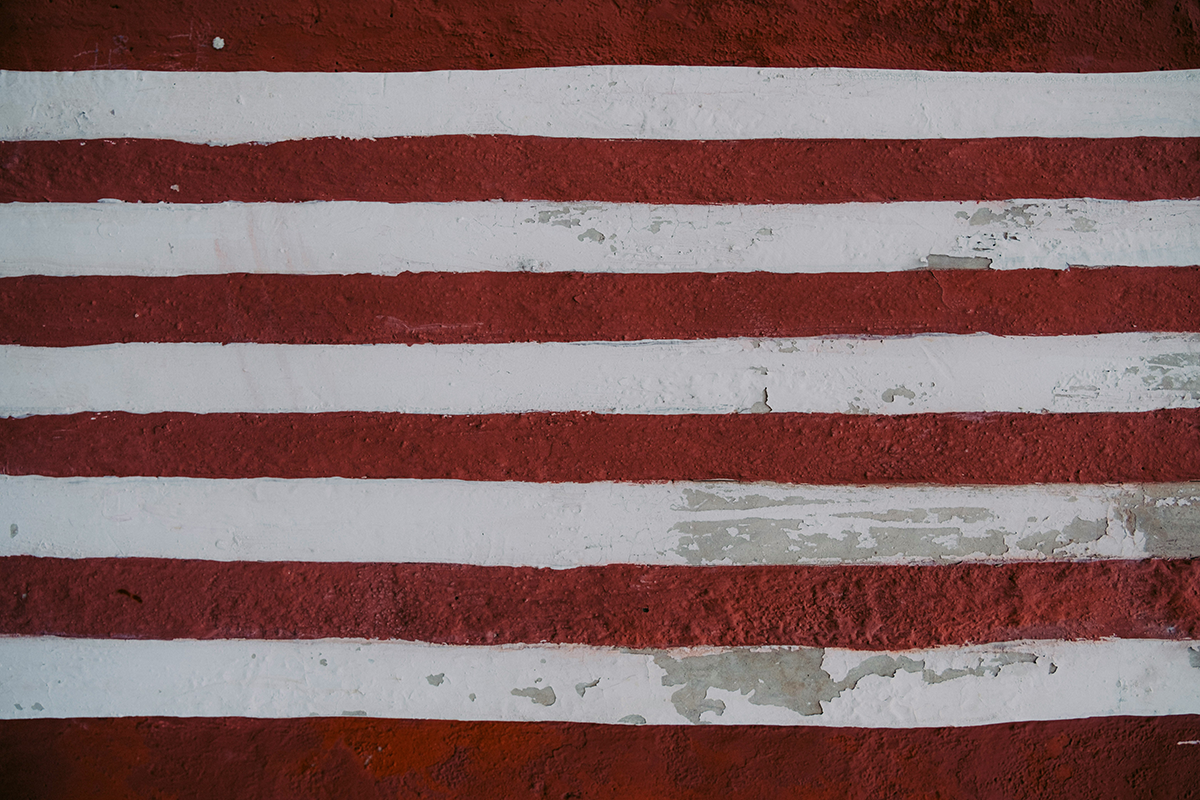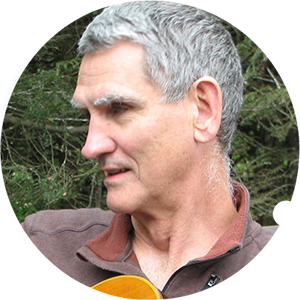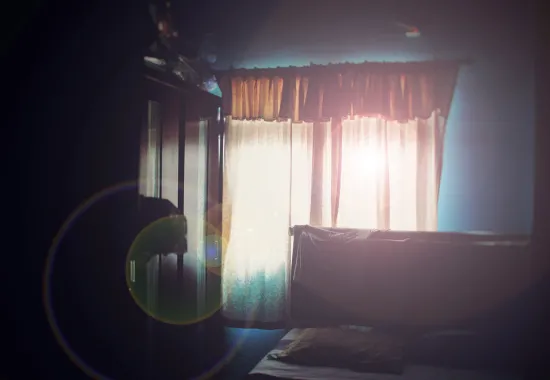Pledge of Allegiance
I pledge allegiance to the flag,” the class droned. We stood with our right hands over our hearts, Mrs. Moeller, our second-grade teacher, directing our recital. The classroom flag hung from its pole over her head. It was a standard classroom set-up in 1950s America, in this case, rural Iowa—the teacher at the front, rows of students reciting the pledge to begin the day. All over America, kids were rushing in flush from before-school play to stand by their desks for the pledge.
Mrs. Moeller took the profession of the Pledge of Allegiance seriously. Tall and severe, dark skirt and sweater, she scanned the classroom for shirkers. We were afraid of Mrs. Moeller because she rarely smiled. Her teaching style wasn’t warm and motherly.
“Of the United States of America…”
We were on a roll now. That is, except for me. The whole thing was a conflict. I looked around the room at the faces of my friends and classmates. None were Quakers like our family. They were happily charging through the pledge without second thoughts.
“And to the Republic for which it stands… One nation, under God, indivisible…”
Even if it was complicated for me, I couldn’t refuse to recite the pledge. I’d be sent to the principal’s office.
“With liberty and justice for all.”
For non-Quakers, here’s the crux of the matter. The Pledge of Allegiance is an oath, and Quakers don’t profess oaths. They refused those professions of loyalty to king and country back in Europe, and it got them into a whole mess of trouble. We Quaker kids knew, for example, if we were ever brought to court, we were never to swear to tell the truth on the Bible. You should always tell the truth. Why swear to it? To avoid such hair-splitting, a legal remedy was devised for Quakers. We could say we affirmed that we’d tell the truth. I imagined standing dramatically in front of the court intoning to the surprise and admiration of everyone—“I affirm.” It’s all in the verbs. When the clerk of the court stuck that Bible in front of us, we were to refuse to swear because such swearing implied that other times, when our hand wasn’t on the Bible, for example, we might be lying.
Of course, it didn’t escape my seven-year-old mind that I lied quite frequently, and so did everyone else. Maybe not my father. He’d gone to prison during World War II for not registering for the draft. This put him into a special category, something like Jesus. And my mother was raised a Quaker in the old ways when many of her relatives in rural Iowa wore plain dress and spoke in the plain language, using thee and thy. Plain dress—most often black or gray dresses for the women with a bonnet and black suits and plain shirts for the men with a black hat—was meant to reduce ornamentation and signify spiritual aspirations—humble and practical. My mother knew the consequences of not telling the truth—silent disapproval that could feel like ostracism. But me? It was not so simple.
The January 6 insurrectionists wanted civil war. Thoreau’s civil disobedience was based on a willingness to go to jail and assume suffering himself to lay bare what he believed was an immoral military excursion.
In my world of seven-year-olds, the truth wasn’t black and white but more fluid. It was perfectly acceptable, for example, when confronted by an adult about a transgression for the half-lie to rear its ugly head. We all understood the game, with the teachers ever vigilant, calling us out if they sniffed an obfuscation. “Jonnie, did it really happen like that?” In the Quaker world, the white lie was an anathema. Are you telling the truth or not? But that’s not how the rest of the world operated.
We Quakers were proud we thought swearing to tell the truth was wrong. And it didn’t escape our attention that swearing had a whole other sense to the verb that gave it a rawness. Compared with swearing, affirming might seem bland and lifeless. It didn’t stir the passions, but it did the trick. You’re saying you’ll never hear a lie from me.
The Pledge of Allegiance wasn’t any different than a courtroom oath. Why pledge allegiance to a flag when the morality of a nation could be so transitory? Your allegiance should be to God alone and His commandments. The pledge was doubly complicated for my family because of my father’s stance in World War II. He’d felt that killing people was wrong, and he’d stood up in court at age nineteen and refused to register. In 1942, in Columbia, South Carolina, there was no sympathy for this boy declaring that his conscience wouldn’t allow him to kill others or fight.
But my father had taken his pacifism a step further. Ever since World War I, a path was carved out for conscientious objectors, mostly from recognized peace churches, to undertake alternative service of national interest, such as forest firefighting or building roads or dams. As the son of a Methodist minister, he had a strong claim to this draft classification, when most CO claimants were refused, but he declined even that because to accept the CO status, in his mind, was legitimizing the war machine itself.
His trial in November 1942 and his thirty-month sentence caused a firestorm in war-time South Carolina. Editorials were written calling him out. Everyone had an opinion about what this boy was doing. It eventually led to my grandfather’s removal from his position as pastor of Main Street Methodist Church in Columbia, the largest Methodist church in South Carolina. Much to the consternation of his congregation, the bishop moved him to Gaffney, South Carolina, a backwater in terms of influence and at half his salary. The bishop must have wanted the whole case out of public view.
This history was part of the reason why the pledge was so loaded for me, besides the Quaker injunction against oaths. The image of my father standing up in court was my family’s moral inheritance, something I could never live up to. In a moment of inspiration, I mouthed the words. It wasn’t a dramatic act of principle, but it got me off the hook. Mrs. Moeller thought I was doing my part, while, technically, I was not pledging anything. Even my friends didn’t know.
Oh, what tangled webs we weave. The pledge as a simple statement doesn’t answer the question about what you do when you think your government is committing a wrong. It just says you pledge your allegiance to a flag which represents our Republic. But the expression of allegiance can be as varied and nuanced as our understanding of the responsibilities of citizenship. The Capitol rioters on January 6 used US flags on flag poles to beat the Capitol police. They believed they were patriots. Henry David Thoreau went to jail for tax evasion after publicly condemning the US occupation of Mexico, and his nonviolent civil disobedience is now part of the American character. Were these two actions committed in the same spirit? Hardly.
The former was blind loyalty that led to armed insurrection. It was not about public discourse. It was an attempt at a violent overthrow of the government. The January 6 insurrectionists wanted civil war. Thoreau’s civil disobedience was based on a willingness to go to jail and assume suffering himself to lay bare what he believed was an immoral military excursion. Ultimately, he meant his nonviolent action to lead to public discourse that might dissuade the government from that war and its corrupt origins. The discourse would eventually get it right.
My grandfather, back in 1942, said he loved his country. He professed his love in editorials and to reporters covering his son’s arrest and trial. He was responding to people who thought him unpatriotic because he didn’t take his son to the draft board and force him to register. He wanted to stand by my father’s right to assume suffering for his principles, just as he stood by his eldest son who joined the Navy in 1942 to rid the world of fascism.
If we’ve learned anything in past decades, allegiance to country is better practiced with voting, public discourse, and holding our politicians and public servants to account than with blind loyalty.
Granddaddy had also served one year in the army during World War I (something else he pointed out) but never saw action. He thought WWI was a travesty, a war started by elites but fought by ordinary people who paid the price. It made him heartsick during World War II to read about the mounting deaths in the paper. To add to his worry, his son Bob saw action through some of the most dangerous fighting in the Pacific. In editorials and from the pulpit, he scorned armchair patriots who supported sending young people to their deaths but faced no danger themselves.
1942, the year so important to my family’s history, was also the year that Congress officially adopted the Pledge of Allegiance. With Pearl Harbor fresh in everyone’s mind and America now at war, the government saw an opportunity to use the pledge to cement the country’s resolve.
Maybe saying the pledge every day strengthened the determination of my second-grade classmates in 1959 to be loyal citizens, willing to give their lives to their country when called. After all, their parents were the generation who had fought the war against fascism and won. Those second graders didn’t know then that our generation’s opportunity was coming soon enough. The Vietnam War and its much more dubious claim to righteousness lay ahead. Fifty-eight thousand Americans and untold Vietnamese died in that war that by a growing consensus is now considered a mistake. The conflicting feelings around the Vietnam War are still raw.
If the daily reciting of the Pledge of Allegiance leads us to blindly believe we shouldn’t question our government, it should make us all queasy. If we’ve learned anything in past decades, allegiance to country is better practiced with voting, public discourse, and holding our politicians and public servants to account than with blind loyalty. Love of country is more nuanced than the government professed back in 1942 when the Pledge of Allegiance was adopted.
And it turns out that the pledge is not so simple. We ramble through the words without paying attention to what is being said. The last line is the clincher. If our country pledged ourselves to that, if we had meant what we said and peered into our collective hearts as we professed it, measuring our country against the pledge’s ideal, perhaps we wouldn’t be in the mess we are today. Whether we bring liberty and justice to everyone has been the issue all along.
Recommended
I Have Only Dreamed You Dead, For Now.
Encounter
Schizophrenic Sedona






